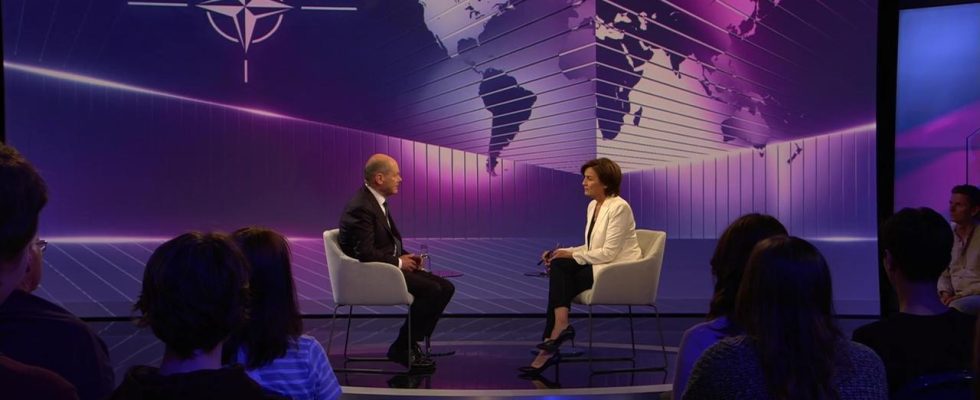War, inflation, heating law – Chancellor Scholz is under pressure. At maischberger he was nevertheless mostly diplomatic. When asked about his career aspirations as a child, he admitted to having a memory gap.
For an hour it was about the really big topics. And to say it right away: the chancellor gave himself and his government good references. price increases? Let’s get a grip. climate targets? Will we comply heating law? Come next week.
Sandra Maischberger asked Olaf Scholz why he didn’t want to do more to combat inflation, why he supported the Nord Stream 2 pipeline at the time, and whether we were all naive when it came to China. Scholz almost always answered diplomatically.
The interviewer and the chancellor almost quarreled only over details such as taxes on food: “No, I don’t agree with you that reducing sales tax will combat inflation in the long term.” Maischberger: “On basic food! For a limited time!” Scholz: “… because you have to raise it again afterwards, and then it goes up again. And that’s why I’m telling you explicitly: That’s not the way it works.”
intelligence services have tried to observe
In terms of foreign policy, the Russian war of aggression against Ukraine was the dominant topic, also because of last weekend’s events in Russia. Scholz described the Wagner Group’s march towards Moscow, which was ultimately halted, as an attempted coup and admitted that the German intelligence services were not as well informed as the US: “Our services tried to keep an eye on the situation, of course,” so the chancellor. Before that, however, they “of course didn’t” know that.
Otherwise, Scholz stuck to his line: When the Russian President speaks of peace, Putin imagines a dictated peace, i.e. exclusively on his terms – and that is unacceptable.
It is important to continue helping Ukraine to defend itself: “But I say consciously: we have to be prepared for the fact that it can take a long time.” An organization that is conceived too short-term could mean that “at some point we will no longer be able to make our contribution.” Always hoping that it will end sooner, but prepare for the fact that the war can last longer, “and we are always able to continue to support Ukraine”.
Russian gas replaced – crisis averted
Scholz defended himself against criticism that, as Vice Chancellor in Angela Merkel’s cabinet, he had contributed to increasing energy dependency on Russia. In the current situation, it is a success that Germany was able to meet its energy needs without Russia: “And we managed to replace what came from Russia after the gas supplies were stopped.”
Nobody would have expected that. “And the fact that we got through last winter without an economic crisis and without it getting cold is really a great achievement for our country.”
From China to real ones memory gaps
Also reducing German dependencies on China – this intention could be heard in the Chancellor’s answers. But he expressed it positively: He likes relations and trade with China – but that also applies to many other countries.
From the political world stage to German boiler rooms and supermarket shelves, almost everything was included in the Chancellor’s talk. In all seriousness, there is still time for personal words with a smile: Scholz’s father is said to have said that his son wanted to become Chancellor at the age of twelve. If that’s true? Since Scholz admitted to a real memory gap.

